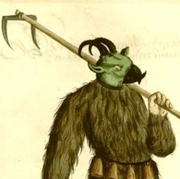|
John Chrysostom would constantly get ratioied to hell and back but would never stop posting.
|
|
|
|

|
| # ? Jun 10, 2024 16:29 |
|
PawParole posted:The UN doesn’t go around asking you to pay up if you don’t want them to smash up the place. Now who’s being naive.
|
|
|
|
Tulip posted:I read GGS in HS and I remember talking with my older brother about it, who hated it because it didn't give enough credit to European capitalism, and to this day I'm baffled as to how 1500s Spain qualified as meaningfully capitalist. Depending on how capitalist cashes out  I'm pretty sure capitalism is strictly an industrial revolution and later thing.
|
|
|
|
Nebakenezzer posted:Depending on how capitalist cashes out
|
|
|
|
ToxicAcne posted:Actually looking back at some of those threads, the explanation was that his thesis ignores the agency of indigenous peoples and the role of social relations in the conquest. I.e how Cortes and Pizzaro got insanely lucky or how the destruction of the Aztec and Incan Empires relied more on how much their enemies hated them than any technological superiority by the Spanish. they would have still gotten hosed. it would just have happened during the course of decades instead of years
|
|
|
|
babypolis posted:they would have still gotten hosed. it would just have happened during the course of decades instead of years the other factors was in the case of the Inca empire smallpox was already starting to spread. Good luck resisting foreign invasion if 70 - 80% of the local population / military did a die-off from a easily transmitted disease.
|
|
|
|
Archduke Frantz Fanon posted:John Chrysostom would constantly get ratioied to hell and back but would never stop posting. he would be a nazi
|
|
|
|
Samog posted:he would be a nazi Lmao what? Xaris posted:Richard Wolff has some good episodes on his podcast (Economic Update) about it, and Marx also wrote a lot. Capitalism kind of as know it has existed for awhile just in slightly different forms, much of it still being landed-gentry/having absurd wealth-begets-more wealth/power-begets-power in Feudalism, Monarchys, etc in that the people are most often exploited for their labor and the elite siphon off it like bloated parasites. The slaver/master | serf/lord | labor/boss relationship really is pretty much almost the same. Globalized capitalism is more strictly an industrial revolution thing yeah. You literally could not have capitalism before stock markets. PawParole has issued a correction as of 00:08 on Sep 27, 2020 |
|
|
|
the active shooter kind too not the social media shill kind
|
|
|
|
Xaris posted:Richard Wolff has some good episodes on his podcast (Economic Update) about it, and Marx also wrote a lot. Capitalism kind of as know it has existed for awhile just in slightly different forms, much of it still being landed-gentry/having absurd wealth-begets-more wealth/power-begets-power in Feudalism, Monarchys, etc in that the people are most often exploited for their labor and the elite siphon off it like bloated parasites. The slaver/master | serf/lord | labor/boss relationship really is pretty much almost the same. Globalized capitalism is more strictly an industrial revolution thing yeah. Personal piss take incoming: It wouldn't surprise me that Marx is all over the place on this; my impression is that he says whatever he thinks will work politically regardless if it contradicts something else he said or not. My [admittedly under-read] Marxism saw political relations arise from material circumstances, hence the industrial revolution being so lovely for the workers. So if you want to talk about Marxism fixing this problem, it's happening in that context, or at least in a context like 1860s industrial Europe. TL;DR If you use capitalism and are talking about factories, capital, oppressed workers I follow you, but if you start using the term in ancient history, then I'm giving you the side-eye as I think you're using some dubious Marxist teleology. Obviously, you may think this wrong, and that's cool. BTW, Teleology was an absolute fuckin' favorite of medieval academics, because once you get good you can line up cow poo poo with "extolling the greater glory of God". It's death as respectable philosophy happened when people clocked that it was a lot like literary/film interpretation: a good teleologist/inter peter could make **any** interpretation coherent. Descartes got all the hawt catholic ladies with his Cartesian co-ordinate grid and the seeming magic of recently imported Algebra mapping perfectly onto it, and then for his next trick he used the nature of God in a proof to verify our perception of the material world, and that's the direction philosophy went I mean he was bangin' a Swedish princess when he died etalian posted:the other factors was in the case of the Inca empire smallpox was already starting to spread. It blows my mind that despite all the really bad things that happened to native Americans, it's still only a small share of the deaths, as measles + [another disease that might be smallpox] killed like 4/5s of the population
|
|
|
|
It is often claimed that there was no bronze age in america, which is false, because bronze was in fact produced, especially by the Inca, although not on the same scale as in Eurasia. However, to make bronze requires both copper and tin, and though copper is fairly common throughout the world, tin definitely was not: 
|
|
|
|
Xaris posted:Richard Wolff has some good episodes on his podcast (Economic Update) about it, and Marx also wrote a lot. Capitalism kind of as know it has existed for awhile just in slightly different forms, much of it still being landed-gentry/having absurd wealth-begets-more wealth/power-begets-power in Feudalism, Monarchys, etc in that the people are most often exploited for their labor and the elite siphon off it like bloated parasites. The slaver/master | serf/lord | labor/boss relationship really is pretty much almost the same. Globalized capitalism is more strictly an industrial revolution thing yeah. hmmm I would say capitalism needs much more than what you have in slave or feudal society. If you want to know the key things that Marx uses - Private property (this is not land tied to a noble family but property that can be bought and sold as well as rented) - Free Individuals (not tied to land or master alla serf and slave) - Mass production of goods for sale (this is the most important one). In feudalism peasants did most of their work for their own families building their home, crafting clothing and furniture, etc, food was grown to be kept by the family that grew it, with some being given to the lord, or some time spent working the lord's land. There was of course trade and some markets but no general market that could drive an equilibrium of input/output, that's important. And in many places there were commons and cooperative labor. The important change with capitalism is that anything can be owned, and there's no basic material existence for laborers, so they become proletariat - landless free men. The commons being the first experiment in the expansion of property rights is important because it denies an otherwise free means of subsistence from common people. Privatizing land and charging rent as well. This means you must work for someone which is very different from you must work for your lord, as it creates a market for labor. And that means you make things for someone to sell, not for personal use. The marketization is totalitarian and you get a capitalist economy. The most important reason is that it requires growth. People work more hours, more land is made private, more productivity is required. Because now private property, land and later machinery and ideas, is put up against other property and it has to make returns. Nothing can sit idle even if it's logical to do so. That's a big change from previous organizations of society.
|
|
|
|
There's an important distinction to be made between capital and capitalism - one does not beget the other - and also Marxist capital which is another thing entirely. Capital has existed since pre-history because it's a basic concept of tool use. You chip some rocks to make a sharp rock for cutting and bang, that sharp rock is now your capital since it improves your productivity and therefore economic performance. That's all it is, a produced good that improves productivity. As economies become more and more complicated the core concept of capital diversifies into things like wells, carts, factories. On that latter example, we see it starting to get into the realm of what Marx calls the means of production - where the productivity of certain goods is no longer being increased but simply enabled; where the good being produced is now so complicated that it cannot be done at all without capital. Because capital is a kind of good itself, it is owned by the wealthy, and money starts to enter the system as a capital good because it can purchase goods for resale in other trading markets for more money. This leads us into Marxist capital (politely referred to as financial capital just in case people think its communism) which is explicitly money being used to purchase goods for sale at a higher price. It is distinct from general capital because it only produces wealth without performing a function outside of its economic role. Like a capital good it increases economic power but unlike a capital good it does not produce goods. Because we live in the End of History there is a tendency to mistake everyday items, such as coins, for markers of ideology. Many people look back at the past and see money, and trade, and markets, and wealthy and say "oh that was a kind of capitalism" but none of those things are unique to capitalism and it wasn't. Capitalism was expressly an ideology grown from the reigning idea of mercantilism which began with the age of sail and was the driving force for colonialism. Mercantilism, as a doctrine, stated that there were a certain number of resources in the world and the way a nation became rich was taking them from elsewhere. As natural resources poured in from the colonies they had to processed into goods, and this led to widespread industrialisation for the processing - the nascent capitalists realised that this was another way of generating wealth, by investment of capital into not just the structures of production but the structures of labour and land. There we come to the key difference between "there has always been money and markets and capital" and "capitalism" - under capitalism it is not simply the use of money and markets and capital but the marriage of both the structures of production and the structures of society for the primary purpose of producing financial capital, and the resulting divorce of workers and capital goods.
|
|
|
|
Feudal society can sit stagnant for 1000 years and it's stable, with climate and disease probably being the biggest instabilities and they're exogenous. Capitalism has to grow and change, and it seeks turning more things into markets, mass produced goods, it cannot sit still. And I think Marx gets represented as saying private property is theft, the workers never get a fair wage, etc But at least in Capital it's pretty clear he's not making a moral case like this, workers cannot get a fair wage, it's impossible under capitalism. And that's the point of revolution anyway, even an ideal capitalism is unstable and unequal, because stability and equality means it's about to collapse and gently caress everyone over, and of course the instability leads to periodic collapse anyway. The big idea Marx thinks capitalism does build is monopolies, because periodic collapse is best remedied by consolidation, something I don't think any other kind of economic theory has as such an obvious and unavoidable consequence, and you don't see constant movement toward monopoly in pervious forms of economic systems used by humans.
|
|
|
|
yah this is good stuff. Capitalism is a specific economic form and behavior which has been around in bits and pieces through history being made general and whole in our era, as older forms fade away. My understanding, though, is that in history if I had a hammer I didn't have an impetus to compare how many nails it hammered per day to other hammers, but competition in a market does give me that impetus. So while technically capital is just labor done in the past which can be used in a process now, the impetus to use it seeking more of itself makes it capital in the modern sense. Meaning its not just money that drives capitalism, but all capital land and factory and so on, must be seeking returns and growth at the best rate it can or else be a huge loss, there is no 'sitting still'. edit: and the distinction is important because a machine can lose value when a newer model comes to market which is another drive toward rapid growth, if it was just money as capital well money cannot lose value relative to itself if you wait too long (yah yah interest rate whateveR). edit: oh poo poo I thought this was the econ thread oops Antonymous has issued a correction as of 02:36 on Sep 27, 2020 |
|
|
|
Antonymous posted:The big idea Marx thinks capitalism does build is monopolies, because periodic collapse is best remedied by consolidation, something I don't think any other kind of economic theory has as such an obvious and unavoidable consequence, and you don't see constant movement toward monopoly in pervious forms of economic systems used by humans. Don't tell the ancient kingdoms (like China) that used monopolies in certain sorts of production (salt being the big one) as a method of taxation. Ghostlight posted:Because we live in the End of History lol you find the end of history when you stop looking twoday posted:It is often claimed that there was no bronze age in america, which is false, because bronze was in fact produced, especially by the Inca, although not on the same scale as in Eurasia. The idea that tin was the cornerstone of trade (it being something like oil or coal had an inelastic demand) and this came to an end when people figured out Iron and steel, which was much easier/cheaper does make a heck of a lot of sense
|
|
|
|
Nebakenezzer posted:Don't tell the ancient kingdoms (like China) that used monopolies in certain sorts of production (salt being the big one) as a method of taxation. Yeah interesting point. I guess I should read again what is so specific about monopolies in a Marxist description of capitalism but they are at least not legally enforced by the state under threat of violence againts a more stable alternative (except in the sense that all private property falls under that description). They sorta emerge as a stable lowest-energy-state of private property logic in response to falling profit rate, but not out of feudal or slave relations. Slave plantations didn't need to consolidate into mega farms they way modern agriculture is doing. or maybe I'm talking out of my rear end
|
|
|
|
Nebakenezzer posted:Don't tell the ancient kingdoms (like China) that used monopolies in certain sorts of production (salt being the big one) as a method of taxation. Marx's theory gets less applicable the further you get from mid-19th century northern Europe. Part of this I think is limited resources - bronze age stuff wasn't that well understood in the 19th century, and while it is extremely fair to call Sparta a slavery-centered economy, it's not very sensible for Sumeria or Egypt who have frankly weirder economies. The bronze-iron transition is pretty fascinating and it's not really just a matter of 'figuring out.' Iron's much easier to find in greater quantities in the earth, sure, but smelting it requires significantly higher temperatures, You need 1250C to smelt iron, while you can fully melt bronze by 950C. This is a huge difference in how much fuel you need, especially since for the iron you're nowhere near done after the initial smelt while the bronze can be cast. This leads to a couple of reasons to use bronze over iron - 1. Less labor and less fuel 2. Complex trade network means that there's vested parties in maintaining that 3. "If it ain't broke, don't fix it" is pretty good logic for groups that stick around for 1000+ years Of course once those trade networks die, the calculus changes significantly since 2 and 3 stop working. That's of course all really about in the Eastern Mediterranean and Europe/MENA region. Subsaharan Africa, India, and China all had different paths. China went nearly straight to blast furnaces, which is crazy to me.
|
|
|
|
yeah using monopolies as an indicator of capitalism rather than as one result of it is problematic for a lot of reasons the free trade of goods and services emerged, after all, from the breakdown of monopolistic feudal guilds and early modern mercantilist state monopolies hell, in a way feudalism can be defined by its monopolies. the miller had a monopoly on grinding grain, the lord had a monopoly on forest products, etc. from top to bottom
|
|
|
|
Nebakenezzer posted:It blows my mind that despite all the really bad things that happened to native Americans, it's still only a small share of the deaths, as measles + [another disease that might be smallpox] killed like 4/5s of the population Even with the list of disadvantages for things like lack of steel weapons the Incan Rebellion came really close to being successful after the Spanish foolishly made it clear that the puppet king they selected was just taking orders from them. The Incas had the Spanish successfully bottled up in in places like Lima but Incas in Lima decided to do a do or die open battle in Lima instead of following their slow siege tactics. Before trying a open battle they had big success at doing ambushes at places like mountain passes or ravines that neutralized many of the advantages the Spanish had like being able do shock Calvary charges. After the main Inca general was killed in a Calvary charge this freed up forces to relief sieges in other spots. https://www.youtube.com/watch?v=813PlMo0-54 etalian has issued a correction as of 04:10 on Sep 27, 2020 |
|
|
|
etalian posted:the other factors was in the case of the Inca empire smallpox was already starting to spread. while i'm hoping to do more of a post when i have time and brain for this thread, when i said "the Americas' developmental issues" I really meant "why they got colonized by Europe rather than vice versa / a more equal exchange", which hinges on 2.5 things: 1) germs 2) botes 2.5) livestock with 1 being the bigger one and closely linked to 2.5 bonus round: if i'm so bigbrained and geography is destiny, why didn't Morocco discover/colonize the Americas? Goatse James Bond has issued a correction as of 05:11 on Sep 27, 2020 |
|
|
|
One thing I also learned about in undergrad Latin American history is that the Native American genocide wasn't as complete in Mexico, Central America and the Andes as it was in North America, the Carribean, and the Southern Cone. This was mostly because these regions were hugely populated so even with mass die offs there were still alot of people left. Indigenous peoples make up a huge portion of the population in these regions to this day. Even in North America, it's dangerous to treat Indigenous cultures as dying or dead cuz it brings this air of inevitability to their oppression.
|
|
|
GreyjoyBastard posted:while i'm hoping to do more of a post when i have time and brain for this thread, when i said "the Americas' developmental issues" I really meant "why they got colonized by Europe rather than vice versa / a more equal exchange", which hinges on 2.5 things: one piece of speculation that i heard, and would like to know if it's bullshit or not, is that the reliance on grains in places like europe and asia relative to the diet in the caribbean and eastern US, which was much more heavy on tubers like potatoes, had a big effect on how populations could be concentrated and therefore converted into empire in big parts of the americas the argument goes that potatoes and similar crops cannot be as easily stored longer term, and so therefore it was harder for them to concentrate their relatively large population into the kind of density that drives specialization and technological advancement, since larger portions of the population needed to live in much closer proximity to the fields themselves, whereas grains can be transported to defensible locations and stored for years without issue. i'd also buy that the lack of domesticated livestock in north america had a similar effect the food was just plain not as transportable as it was in europe and asia, and that had massive, long-term consequences on the level of technological advancement individual cultures could achieve
|
|
|
|
|
ToxicAcne posted:One thing I also learned about in undergrad Latin American history is that the Native American genocide wasn't as complete in Mexico, Central America and the Andes as it was in North America, the Carribean, and the Southern Cone. This was mostly because these regions were hugely populated so even with mass die offs there were still alot of people left. Indigenous peoples make up a huge portion of the population in these regions to this day. also in undergrad i was told that the highland populations were more intact because the elevation/weather made the diseases harder to spread. no idea if that's true though
|
|
|
|
GreyjoyBastard posted:
They already had a trade route to Africa so the sheer amount of effort to get around the bulge of Africa would be pointless and so they'd never hit the right currents to make it to Brazil.
|
|
|
|
GreyjoyBastard posted:while i'm hoping to do more of a post when i have time and brain for this thread, when i said "the Americas' developmental issues" I really meant "why they got colonized by Europe rather than vice versa / a more equal exchange", which hinges on 2.5 things: One of the more subtle factors at least for Europe was the invention of the printing press and how it greatly accelerated the spread of things like scientific / engineering / manufacturing best practice concepts. It also had the additional benefit of increasing the literacy in Europe over time after basics like reading started be taught and mastered by more people instead of being a skill just for elites. Another cultures like China already had the concept but for various reasons like the powers to be not liking the idea it never had the same massive impact as in Europe. 
|
|
|
|
etalian posted:Another cultures like China already had the concept but for various reasons like the powers to be not liking the idea it never had the same massive impact as in Europe. It never had the same shock impact, but it's actually very easy to see how scientific innovations in China spread very rapidly, partially encouraged by having a long-standing and wide-ranging literate culture. One of the more famous ones is humidified basements - important to silk processing, since silk cannot be spun below a certain humidity and this had meant that whole seasons were relatively idle in drier parts of China. We can also see innovations in medicine, furnaces, etc. spread quite rapidly throughout China. The Great Divergence by Pomeranz is, to my knowledge, the still-standing bible on this question. It's not the fastest read, because a huge percentage of the book is "here's a theory some historians have proposed as to why Europe was different in 1850 than India/China/Japan. Here's why it's wrong." but it is a very comprehensive dive into a very hard question.
|
|
|
|
ToxicAcne posted:Even in North America, it's dangerous to treat Indigenous cultures as dying or dead cuz it brings this air of inevitability to their oppression. This is why the National Museum of the American Indian has a big theater that runs a video whose message is literally "We're still here you dumb motherfuckers."
|
|
|
|
etalian posted:One of the more subtle factors at least for Europe was the invention of the printing press and how it greatly accelerated the spread of things like scientific / engineering / manufacturing best practice concepts. It also had the additional benefit of increasing the literacy in Europe over time after basics like reading started be taught and mastered by more people instead of being a skill just for elites. there were a lot of reasons, but even the printing processes of asia were more expensive and took longer than moveable type (woodblock carving could still only make a few dozen copies before needing replaced) so it was often limited to religious texts, essentially as a more efficient form of monks/failsons at uni. the initial explosion was due to coming at a time of a very literary focused time of chaos for europe (the reformation) and it was a lot of opening up, pissing off the local authorities and then shutting down. anyway the huge explosion came when books became a lot more secular books started coming out. also coincides with the process of printing becoming a “printer” who didnt do anything other than own the press and type and then all the actual work done by apprentices and journeymen. this style of ownership became very popular in other industries very shortly!
|
|
|
|
Re: proto-linguistics a couple of pages back I've been reading in In Search of the Perfect Language by Umberto Eco, it's really entertaining and interesting. From the church fathers to the Renaissance it was taken for granted by most people that Hebrew was the original language spoken by Adam. Later the tongues were confused at Babel, but Hebrew remained spoken by the descendants of Noah's favored son Shem through his descendant Eber, ancestor of the Hebrews. Even the Hebrew alphabet was thought by some to have been created alongside language, or even that it was involved in creation. Proofs were put forward to show the perfection of Hebrew, among other things the sounds of it were the most natural for people to pronounce. Anagrams and fantastical etymologies were employed to show that the Hebrew words for things were not arbitrarily assigned to them, but perfectly described the nature of the thing. In Eden, God had led all the animals in front of Adam and had him give each of them its proper name. From the 16th century onward we start seeing proposals for alternative original languages, many of which just happened to be the mother tongue of the person who proposed it. Flemish was an early one. One of the supposed proofs often employed was that the language's words mimicked the things they described. Another claim was that the crown of the adamic language could pass on "in spirit", as with the Roman empire, and it was suggested that Tuscan had inherited this. I already mentioned Sweden, it was claimed to be the language of the Goths and spoken in Atlantis. One common idea was that Celtic languages were the original tongues of Europe, inherited from Gomer, son of Noah's son Japhet, who had not been present at Babel and therefore hadn't had his tongue confused. Many Germans thought that German, if not the original language, was certainly the most natural and "adamic", and that surely Adam must have spoken German when he gave the animals their proper names. Martin Luther actually thought this. This was in the time when the European nation states were being formed, which isn't a coincidence. Luther's German bible was also a factor. There were other theories of language which were less ridiculous. People like Vico and Leibnitz made fun of the ones above. Leibnitz also entertained some German chauvinist thought on language though. The process of comparing languages and trying to find commonalities sometimes accidentally found real etymologies, and in the 18th century actual comparative linguistics was born when it was noticed that Greek, Latin and Sanskrit had too much in common for it to be a coincide. Of course later that discovery of the "Aryan" past got abused in well known and terrible ways.
|
|
|
|
That rules. I love that general modernist thing where people set out to study x y or z subject, not to get a deeper understanding of the subject, but because they're determined to make a record store employee esque ranking of the things in the subject and determine, once and for all, which language/race/prog rock album is the greatest.
|
|
|
|
Tulip posted:e: We all know the most powerful poster would be Diogenes, while Plato would be in some libcult on Twitter. socrates would also be extremely powerful. he invented a powerful trolling technique that you can use to own almost any philosopher. little defense is possible against a skilled wielder
|
|
|
|

|
|
|
|
fabergay egg posted:socrates would also be extremely powerful. he invented a powerful trolling technique that you can use to own almost any philosopher. little defense is possible against a skilled wielder The internet metaphor works well with him since Socrates as an online persona of angry academic who is all bent out of shape that the world is messy and analog instead of a hard science
|
|
|
|
Nebakenezzer posted:The internet metaphor works well with him since Socrates as an online persona of angry academic who is all bent out of shape that the world is messy and analog instead of a hard science He also decided to "perma-ban" himself in real life.
|
|
|
|
socrates was cancelled and chose a dignified death over fleeing to an alternative platform
|
|
|
|
Grevling posted:Re: proto-linguistics a couple of pages back I've been reading in In Search of the Perfect Language by Umberto Eco, it's really entertaining and interesting. Herodotus writes how he heard a story of an Egyptian Pharaoh taking a couple kids and raising them in isolation with only mute attendants. The kids eventually say the word bekos, which apparently is the Phrygian word for bread. Apparently the Egyptians thought phygian was the oldest.
|
|
|
|
aristotle is bill mitchell
|
|
|
|
The whole "OG language" thing reminds me of the pushback against metric:   
|
|
|
|

|
| # ? Jun 10, 2024 16:29 |
|
The history of vodka in Russia which has some fun facts how vodka was made a state run monopoly and also was the Russian version of "Bread + Circuses". The Bolshevik's had pushing prohibition as one of the main reforms and also shut down all the state run booze factories when they took over. https://www.youtube.com/watch?v=vK7l55ZOVIc
|
|
|








































